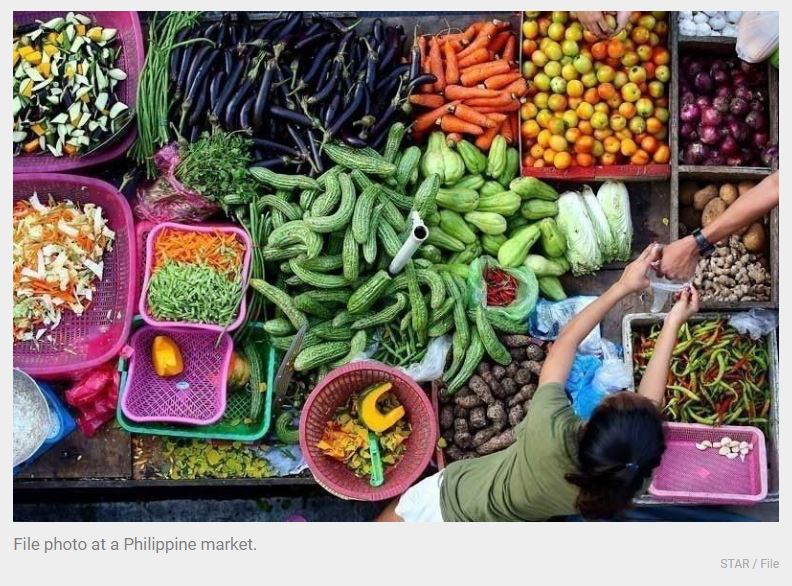Philippines: Decelerating inflation strengthens BSP’s rate pause stance
MANILA, Philippines (Updated, 10:53 a.m.) — Consumer price growth continued to soften in June as the domestic economy absorbs aggressive rate hikes in the past, bolstering the case for the Bangko Sentral ng Pilipinas to maintain the tightening pause.
Inflation eased 5.4% year-on-year in June, slower compared to the 6.1% outturn recorded in the previous month, the Philippine Statistics Authority reported Wednesday.
Year-to-date, inflation is averaged 7.2%, still above the government’s 2-4% annual target.
Core inflation, computed without volatile items such as fuel prices, retreated slightly to 7.4% in June, from 7.7% in the preceding month.
Price growth in June painted a picture of a domestic economy absorbing the impact of the BSP’s aggressive tightening, meant to arrest skyrocketing inflation, which began at the midpoint of 2022.
Inflation began soaring last year as a result of supply chain bottlenecks, expensive fuel prices, a weak peso, and the Philippine economy’s full reopening which fueled consumer spending.
The central bank hopes inflation will hit its 2-4% target in 2023, as they expect price growth to slow further in September or October.
To the BSP’s credit, monetary policy has done most of the work to lift the Philippines out of the inflation hole. The policy rate is now at 6.25%, after the central bank hiked it by a total of 425 basis points to tame painful price growth.
“Moving forward, we expect inflation to continue its downward trend, sans any significant shock,” Domini Velasquez, chief economist at China Banking Corp., said in a commentary ahead of the official data release.
Even then, Velasquez noted risks remain on the horizon. These range from the P40 minimum wage hike in Metro Manila to North Luzon Expressway toll hikes and food shortages.
The China Bank economist expects the BSP to maintain the pause on any rate action, owing it to the price growth trajectory.
“However, there is still a chance that the BSP may be forced to resume hiking if the peso depreciates excessively—which is inflationary—from a narrower interest rate differential with teh Fed,” Velasquez said.
State statistician Claire Dennis Mapa explained that inflation is indeed decelerating, despite tallying price increases across certain commodities.
“The general trend is that inflation is going down,” he said.
June data supported Mapa’s assessment. Inflation across Metro Manila and areas outside the capital recorded at 5.6% and 5.3%, respectively, slower compared to the preceding month.
What stood out across the data in June was price increases, albeit slower, across a food staple for Filipinos. Rice prices nationwide inched up 3.6% on an annual basis during the month.
President Ferdinand Marcos Jr. promised in the campaign trail that a kilo of rice would cost P20, a commitment that seen little progress.
That said, government data showed that rice price increases were incremental. Across three months, the average price for a kilo of regular milled rice nationwide clocked in at P40.6 in April, then P40.9 in May, and tallied P41.2 in June.
Fish, seafood, and vegetables, all recorded faster price growth in June as well.
Nicholas Antonio Mapa, senior economist at ING Bank, indicated that the latest inflation figures validated former Governor Medalla’s decision to hold rates at 6.25%.
“Governor Remolona has space to extend this pause with prices moderating and we expect the BSP to extend their pause until more data compels them to do otherwise,” he said in a Viber message.
Source: https://www.philstar.com/business/2023/07/05/2278832/decelerating-inflation-strengthens-bsps-rate-pause-stance


 Thailand
Thailand




